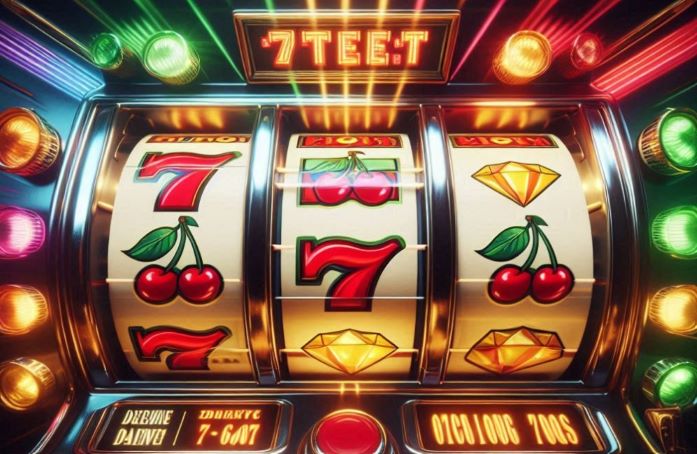Slot Gacor Algorithms: Unveiling the Secrets Behind Online Slot Wins

Slot machines have come a long way from their mechanical beginnings to the sophisticated digital versions we play today. At the heart of these games are intricate algorithms that ensure fairness and excitement for players. Understanding how these algorithms work can demystify the experience and enhance your enjoyment of the game.
In this article, we’ll delve into the algorithms and programming that make slot gacor a possibility. We’ll explore how these algorithms determine the outcomes of each spin, ensuring fairness and excitement for players. We’ll also highlight the balance between randomness and the designed payout rates.
Basics of Slot Machine Algorithms
Slot machine algorithms are the brains behind every spin. They ensure each game is fair and random, providing an engaging experience for players.
- Random Number Generators (RNGs): At the core of every slot machine is the RNG, a complex algorithm that generates random numbers. These numbers correspond to the symbols on the slot machine reels, ensuring that each spin is independent and unpredictable.
- Symbol Mapping: RNGs generate numbers that are mapped to the symbols on the reels. This mapping ensures that each symbol has a specific probability of appearing, which is crucial for maintaining the designed payout rates of the game.
- Game Logic: The game logic integrates the RNG output with the slot machine’s rules, determining payouts and triggering special features like bonus rounds and free spins.
How Randomness is Simulated in Slot Games
True randomness is hard to achieve, but modern technology has made it possible to simulate it effectively in slot games.
- Pseudo-Random Number Generators (PRNGs): Most slot machines use PRNGs, which are algorithms that produce sequences of numbers that appear random. While they are not truly random, they are sufficient for creating fair and unpredictable gaming experiences.
- Seed Values: PRNGs start with a seed value, which can be based on various factors like the current time. This seed value ensures that the sequence of numbers generated is unique and difficult to predict.
- Testing and Certification: To ensure fairness, PRNGs are rigorously tested and certified by independent regulatory bodies. These tests involve running millions of spins to confirm that the outcomes are truly random and fair.
Payout Rates and How They Are Programmed
Payout rates, or return-to-player (RTP) percentages, are critical in determining how much a slot game will pay out over time.
- RTP Calculation: RTP is determined by evaluating the likelihood of each symbol combination and the associated payouts. For instance, if a slot game has an RTP of 96%, it indicates that, over time, players can anticipate receiving 96% of their total wagers back, on average.
- House Edge: The house edge is the percentage of each bet that the casino expects to keep over time. It is calculated as 100% minus the RTP. For instance, an RTP of 96% means a house edge of 4%.
- Volatility: Slot games can also be programmed with different levels of volatility. High volatility games offer larger but less frequent payouts, while low volatility games offer smaller but more frequent payouts. This is achieved by adjusting the probabilities of different symbol combinations.
Ensuring Fair Play and Preventing Cheating
Fair play is paramount in maintaining player trust and the integrity of the game.
- Regulatory Oversight: Regulatory bodies oversee the development and operation of slot games to ensure they meet strict fairness standards. These organizations conduct regular audits and certifications to verify the randomness and fairness of the games.
- Anti-Cheating Measures: Modern slot machines incorporate advanced security measures to prevent cheating. This includes encryption of the RNG algorithm and constant monitoring of the game’s operations to detect any anomalies.
- Player Protection: Online casinos also implement measures to protect players, such as responsible gambling tools and support for players who may develop gambling problems.
The Role of Regulatory Bodies in Monitoring Algorithms
Regulatory bodies play a crucial role in ensuring that slot machines operate fairly and transparently.
- Certification Processes: Before a slot game can be offered to the public, it must undergo rigorous testing and certification by independent regulatory bodies. These tests confirm that the RNG is functioning correctly and that the game’s payout rates are as advertised.
- Ongoing Audits: Even after certification, slot games are subject to regular audits to ensure ongoing compliance with fairness standards. These audits involve reviewing the game’s performance data and testing the RNG for any irregularities.
- Regulatory Standards: Different regions have different regulatory standards for online gambling. It’s important for players to choose online casinos that are licensed and regulated by reputable authorities to ensure they are playing fair games.
Conclusion
Understanding the technology behind slot gacor algorithms can enhance your appreciation of these games. The use of RNGs, careful programming of payout rates, and rigorous regulatory oversight all work together to ensure that slot games are fair, exciting, and unpredictable. By choosing regulated and certified games, players can enjoy a safe and engaging gaming experience.

